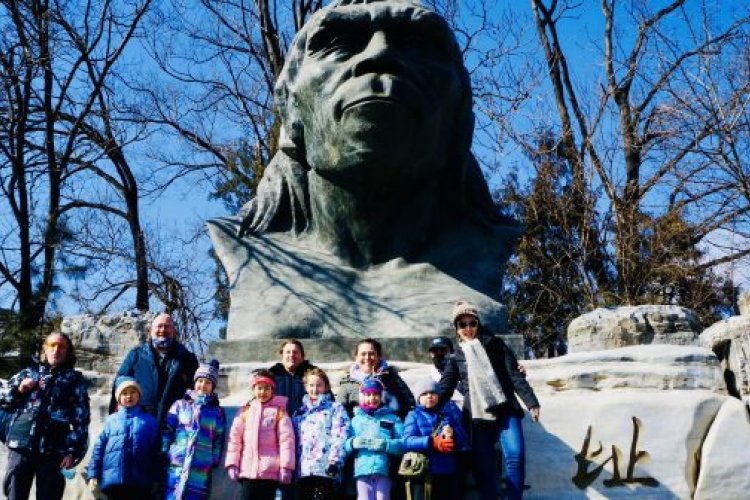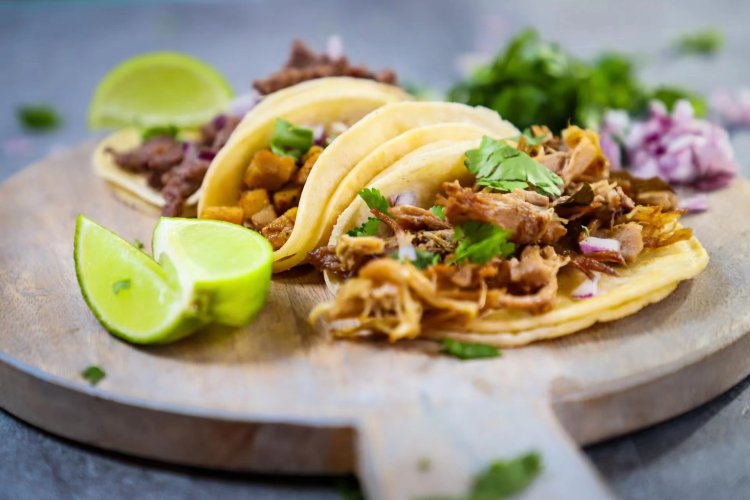New Genghis Khan coming soon...
The Road to Mongolia: Lessons in Self-Restraint
The bus to the Mongolian border was scheduled to leave at 5pm but just to be safe I got to the station half an hour early. With less than 20 hours left on my visa, I was worried that something might go wrong, that I’d get left at the bus station, or worse, at a rest stop on the Inner Mongolian steppe.
Our coach was retrofitted with three rows of metal bunk beds that made it look like an infant ward for adults. I settled into my bunk at the front of the bus and watched the other passengers climb on. Most were ethnic Mongolians; some carried bags of snacks while others talked energetically in their native tongue.
Five o’clock came and went with no sign of the driver. Now, I’m not the most patient person in the world – I get frustrated when people take longer than 30 seconds at the ATM. I started to get anxious. I was on a clock and already cutting it close.
At quarter past five, a large Mongolian man lumbered aboard, nonchalant, with his shirt rolled halfway up his bulbous stomach. He took the wheel and eased us out of the station but, instead of turning north, drove across the street and into a gravel lot behind a wholesale market.
The bus started to rock back and forth. Outside the window I could see people stuffing large black sacks swathed in plastic wrap into the luggage compartments. I had no idea if this was supposed to be happening or not.
After a while, the workers came onto the bus and started stuffing the sacks in the aisles between the beds, packing them in like sandbags to staunch a flood. I asked one of the workers what was in them.
“Clothes,” he replied, and pointed to a hole in one of the bags.
That’s why we were sitting in this parking lot? So that our bus could be used for quasi-legal trafficking? Worst of all, they weren’t even moving something cool, like rare jade or crank, but T-shirts and ill-fitting jeans.
Serenity now. Serenity now, I whispered to myself.
I took out a book and pressed the button for the overhead light but nothing happened. I tried another light. Still nothing.
I asked the driver, “Do these lights work?”
He shook his head, puffed on his cigarette and continued surveying the workers with equanimity. I turned to my fellow travelers but they didn’t seem too concerned about what was going on. In fact, they had broken out the snacks, happily digging into prepackaged sausages and drumsticks; a group in the back had started hitting the
Niulanshan.
The workers continued piling on bags until us passengers were like stowaways in a Gap delivery truck. It dawned on me that getting us to the expressed location in a timely fashion was not the first priority, if indeed it was a priority at all.
Here I started to get angry. ATM-murder-fantasy angry. How the hell had the Mongolians ever managed to create an empire? I wondered. In just two decades, Genghis Khan conquered a swath of land from the Caspian Sea to the Sea of Japan. If he had moved at our pace, he would have died of thirst in the Gobi.
When I was about to lose it, I asked the driver – whose shirt was still partially off – when we’d leave.
“We will leave when we’re ready,” was his Zen-like reply.
“And when will we get to Erlianhot?”
“We’ll get there when we get there.”
The driver didn’t even turn to regard me. He just stared off into the gathering dusk, chain smoking without a care. Maybe it was the fading light, or his late-term pregnancy, but at that moment he took on the guise of Budai, the Laughing Buddha, himself.
About as soon as he answered me, the workers shuffled off and the driver closed the bus door. It was 6.30pm, but just as the driver had foretold, we left when we were ready.
Less than an hour later, we were stopped again, this time surrounded by traffic on the Badaling Expressway. The two-lane road was choked with trucks coughing up exhaust every time they lurched ahead three inches. Passenger cars frantically tried to switch lanes, jostling to fill any void. The highway’s shoulder had been turned into an extra lane by impatient drivers but it too was crammed.
ATM rage grew anew in my chest but our bodhisattva’s words came to comfort me: We’ll get there when we get there. I recited them like a mantra. We’ll get there when we get there. They say the journey is more important than the destination. Indeed, the longer we were stuck in traffic, the farther I advanced along the Eightfold Path.
It was past eight and we weren’t even out of the city limits. Our driver wasn’t the least bit concerned and neither was I. The sun was long gone and most of the passengers were asleep under their bedrolls. I leaned back against my pillow and stared at the traffic until I too drifted off to sleep. But before restful slumber took me, I was filled with faith that I would wake up under the broad Mongolian sky with time to spare, and that our driver would be the one to lead me there.
Click here to see the Beijinger July issue in full.






